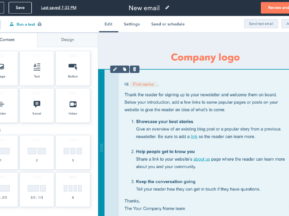
Problem Context: The Human Resources ‘People Team’ identified a wide-scale issue in the management style of project managers in a construction environment. Broadly speaking, the issue was that male project managers – typically high in conventional, societally-understood masculine traits – had significantly more soft skills issues than their female counterparts. From a business perspective, this led to longer new hire onboarding and higher turnover for the direct reports of male PMs. Longer project completion times were anecdotally reported and also suspected to be a result of this dynamic, but empirical data to support this was not gathered due to time constraints. In addition, high-performing female Assistant Project Managers reported being passed over for promotions to become a PM, in favor of less-qualified men. Naturally, this became a concern regarding equity, and a liability concern for potential lawsuits. The question became one of how to quickly get PMs up to speed on these vital soft skills and their unconscious biases faster than traditional therapy or counseling could accomplish.
Solution: Initially, we reached out and received RFPs from various consultants, and I was on a committee to help vet them. During committee discussions over what we liked about each consultant and potential areas of opportunities, I brought up some points that I noticed in my own experience and career. For example, men have a stronger tendency to make quick assumptions about a situation, and then have a more direct communication style that can be interpreted as abrasive. Through these conversations and diligent note-taking, we unwittingly came up with a course outline to cover dozens of topics and learning outcomes where emotional intelligence became the common thread to tie them all together. Given my public speaking experience, I volunteered to design, develop, and facilitate this course in the short span of a two-hour virtual seminar. The main challenge was to market the seminar in a way that “masculine” PMs would be receptive to it, as a valid point was made that referring to it as an “Emotional Intelligence” seminar would not be an effective way to communicate it for buy-in. We decided to instead frame it as a training to create better leaders by promoting teamwork soft skills.
Result: Many topics were addressed from cognitive biases and how our brains are wired, to various sociological and psychological concepts at a high-level. SurveyMonkey was utilized to gather feedback from the seminar. Most of the feedback was extraordinarily positive, with 4.7 out of 5 points given towards the likert scale question of how likely the participant would recommend the training to another colleague. It wasn’t without some criticism though, and the seminar underwent some minor changes as a result of this summative evaluation process. We were able to give the seminar once more before I left the company, with an updated SurveyMonkey score of 4.9 out of 5. Two months after the seminar, we sent a new survey to APMs and other employees to ask how their leaders changed since taking the seminar. There was a significant marked improvement in this feedback, and some lower turnover was reported, but further analysis was needed to control for coincidental confounding variables. Since leaving the company, I have recreated the strong points from this work, reorganized it, and generalized it to apply to any industry – not just construction – to begin offering the course to other companies because of my vested interest and passion in the topic.




